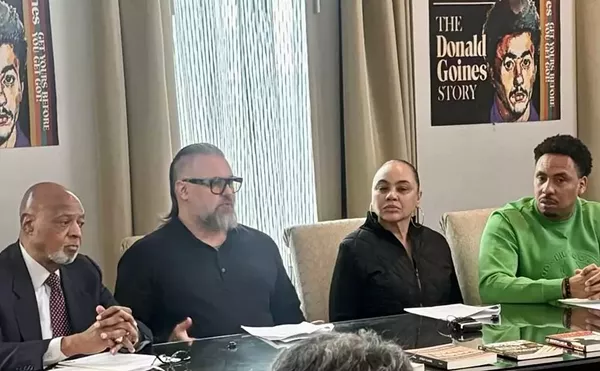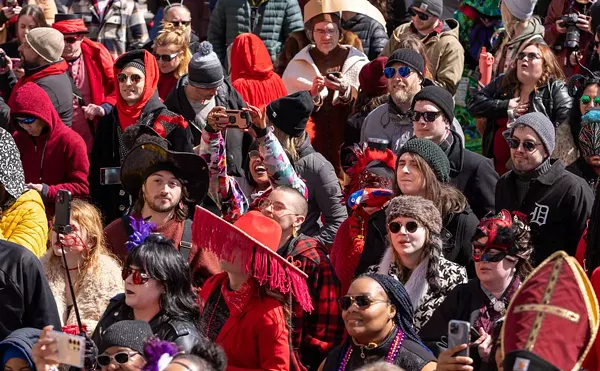Everyone knows a Dan Dunne. He's the guy you knew in college, the one with super-liberal parents who got an education degree mainly because he couldn't figure out what else to major in. He's the guy who moved to New York to "find himself" as a writer and ended up getting swallowed whole by a huge city and an even huger coke habit.
The wonder of Half Nelson is the way that co-writer and director Ryan Fleck maintains our sympathy and interest in a burned-out hipster like Dan (played by Ryan Gosling) without resorting to manipulative melodrama (Dangerous Minds) or flashy, romanticized scenes of drug use (Requiem for a Dream). Fleck doesn't even allow Gosling, as good as he is, to dominate the film: This is a movie anchored as much by an intense, unknown teenage actress, Shareeka Epps, as it is by a Hollywood hotshot.
When the story opens, Dan is teaching middle school in Brooklyn to make a living, most of which goes toward supporting his epic drug habit. He may be wasted and inert, but he's still charismatic in class: When he's not snorting a line just before the bell rings, he can rile up his students telling them about the civil rights movement, or blow up with righteous indignation at a stubborn referee while coaching girls' basketball after school. It's there that he forms a bond with one of his students, Drey (Epps), a lollipop-sucking, 12-year-old tomboy whose face seems permanently frozen into a defiant pout.
Drey has problems of her own: an older brother in jail on a narcotics bust, a deadbeat dad and a caring but overworked mom. Her brother's drug-dealing friend Frank (Anthony Mackie) takes care of Drey out of a sense of obligation, but she recoils from his attention, as well as the spare cash Frank passes along to her mother. She's not so much in need of a father figure as she is a brother figure, and she finds that in Dan; oddly, their relationship only deepens when she catches Dan sucking on a crack pipe after everyone's gone home one night.
It's amazing the way Half Nelson avoids the dramatic traps and easy nihilism that have characterized so many earnest, Sundance Institute-produced features before it. Even as Fleck and co-writer Anna Boden's script edges toward a standoff between the two competing brother figures, they surprise you with Frank's depth of feeling and compassion, or Drey's self-assuredness. Fleck shoots the film in a series of jittery, handheld close-ups; the movie would be claustrophobic if not seen on a big screen, where you can study the subtle shifts in Gosling's heavy-lidded stare, or the way Epps' mouth breaks into a disarming smile at the most unexpected moments. It's a credit to the two of them that Half Nelson can be as uplifting as it is, even as it suggests that change — whether for one addict or an entire racial movement — is a long, slow, hard-won journey.
Showing at the Detroit Film Theatre (inside the DIA, 5200 Woodward Ave., Detroit; 313-833-3237), at 7 p.m. Friday and Saturday, Oct. 6 and 7, and at 4 p.m. on Sunday, Oct. 8.
Michael Hastings writes about film for Metro Times. Send comments to [email protected].






